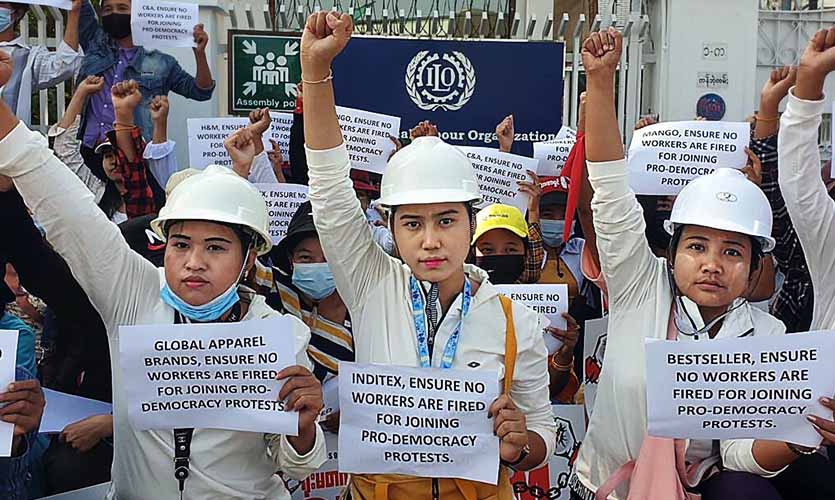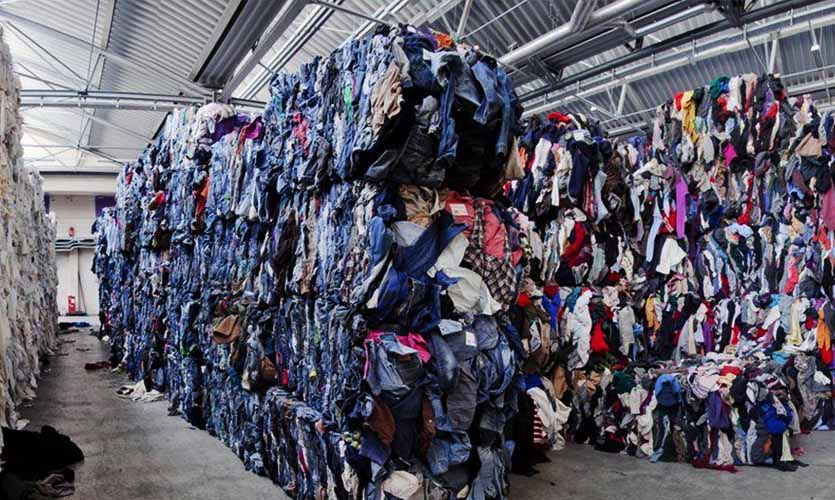Fashion Workers Asking For Help

Last month I shared with you how Myanmar garment workers are protesting the Myanmar coup. Two months later and the situation is not any better. Here is the summary of events:
- Garment workers and union leaders, mostly women are still protesting and leading, often deadly, anti-military protests. They are asking global brands, whose clothes they make, to support them and demand that they don't get fired.
- Many of them are being threatened with job loss and often with their lives.
- Recently, H & M has become the first major retailer to confirm that it will stop placing further orders with it’s 45 suppliers in Myanmar. If the company will show any further support to workers is unkown. - NY Times
Fashion Failing to Meet Green Targets

The inaugural Sustainability Index by the Business of Fashion magazine found that fashion companies often fail to meet their ambitious goals on going green. Here are the inserts from the report:
- "The global economy has 10 years to avoid catastrophic climate change and an urgent duty to improve the welfare of the workers who make it tick," said the report, which was put together by a panel of sustainability experts from around the world.
- "Time is running out and simply stating an ambition to change is no longer good enough."
- "Many of fashion's biggest companies still don't know or don't disclose where their products come from, and the further down the supply chain you go, the more opaque things become," the report said.
- "That enables exploitation and human rights abuses and creates difficulties measuring the industry's environmental impact."
- A 2019 study by the UN Alliance for Sustainable Fashion reported that fashion was the second-biggest consumer of water as well as responsible for 8-10% of global carbon emissions. - Phys
Ralph Lauren Plans to Change How The Industry Dyes Cotton

Ralph Lauren is working on a system called Color on Demand, a multi-phased system. The company has an ambition to deliver the world’s first scalable zero wastewater cotton dyeing system. Here is all you need to know:
- Designed to help address water scarcity and pollution, Color on Demand is a new system composed of a set of technologies that should help the recycling and reuse of all water from the dyeing process.
- “Traditional color dyeing is one of the most polluting practices in our industry, and as a global brand, we recognized the need to create a scalable solution,” said Halide Alagöz, Chief Product and Sustainability Officer at Ralph Lauren.
- “Color on Demand significantly reduces the environmental impact of dyeing cotton, and as an added benefit, will enable us to better balance inventory and meet personalized consumer demands faster than ever before.”
- The company claims that by 2025 the system will be fully implemented. Fingers crossed it will work out. - Business Wire
Sri Lankan Workers Suffer While Brands Profit

Labour rights advocates published a brief on the situation of the Sri Lankan garment industry during the pandemic. Some important points from the brief are in the bullet points:
- Covid-19 pandemic has had devastating effects on the health, and human rights of Sri Lanka’s 300,000 garment workers, that are mostly women.
- Brands such as Next, PVH (Calvin Klein) Nike, Gap, Ralph Lauren, Victoria’s Secret, Marks & Spencer, Levi’s are among the companies that work closely with Sri Lanka’s companies.
- The brief is urging brands producing in Sri Lanka to pay attention to human rights and work together in creating a solution that will help the workers.
- For context; The monthly minimum wage in Sri Lanka is only 3,500 LKR (68 USD). Workers work long hours, skip lunch and breaks to meet the targets and increase their earnings to what is still a poverty wage. - Clean Clothes
